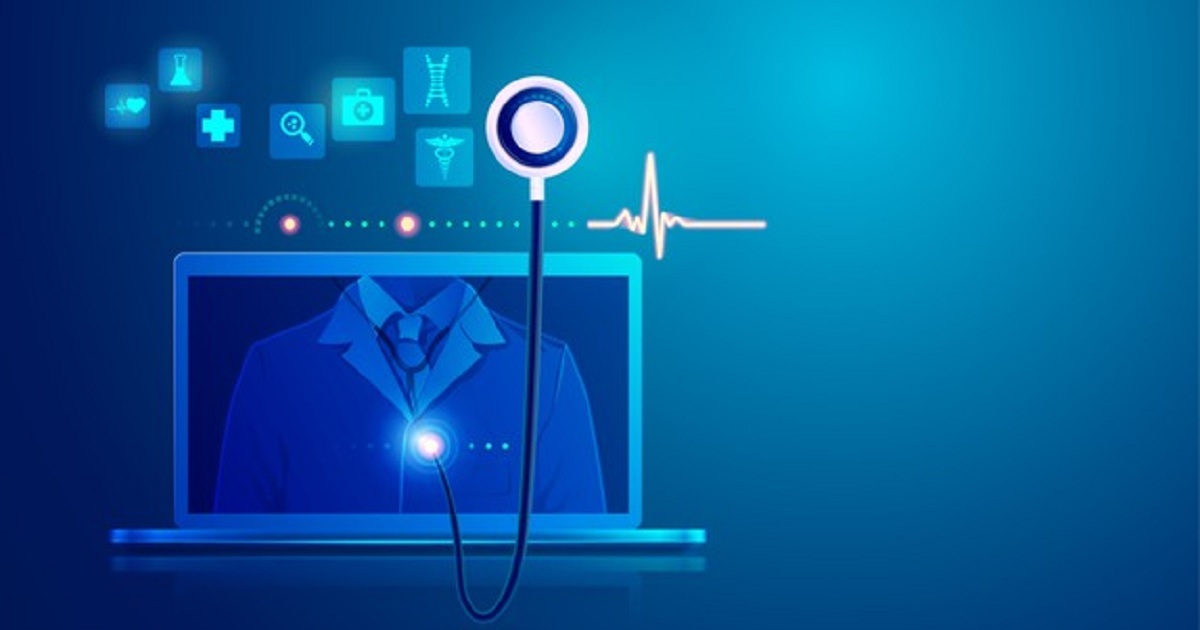
Health Technology, Digital Healthcare
Article | August 21, 2023
Do you have a difficult time explaining your mental health issues to your family and friends?
If so, here are six suggestions on how to discuss your mental health issues with your friends and relatives.
1. Talk to a counselor: The most important thing that you need to do is to talk to a counselor about your mental health problems. Seeking professional help will go a long way in overcoming your current issues. In addition, a counselor will be able to give you additional advice on how to deal with your friends and family members.
2. Don’t argue with others: It is important that you do not get into arguments with those who are giving you a hard time. Your number one priority is getting your life back on track. Your health is more important than what other people may think.
3. Watch who you hang out with: It is important to surround yourself with positive people. Try to keep your distance from those people who are giving you a difficult time. Remember that your goal is to remain positive and hopeful. Do not let the negative people in your life bring you down.
4. You are not alone: It can be very frustrating to deal with your mental health issues when your friends and relatives are on your case. Remember, you are not alone. There are millions of people around the world who struggle with their fears, anxieties, and depression. The key is to find those people who can relate to you.
5. Stand your ground: It is important to stand your ground when dealing with family members and friends who are giving you a hard time. Explain your situation and your feelings to the people in your life, however don’t let them hassle you. Your number one priority is to get better and not to please everyone that you know.
6. Join a support group: There are many mental health support groups in your area that can help you. Many hospitals, churches, and counselors in your area will be able to provide you with a list of groups. These mental health organizations will be supportive of your situation and they can give you additional advice regarding your problems.
Read More

Health Technology
Article | September 12, 2023
Momentum in digital healthcare transformation… it’s massive, and much needed.
As organizations adapt to new modes of care, demands on resources, and consumer expectations, payors and providers are eyeing opportunities to reduce costs, improve care, build awareness, and expand relationships.Here are 8 trends we’re currently tracking into 2021:
TREND 1
The evolution of healthcare will be characterized by a reengineering of clinical care and operations around digital health and pervasive real-time use of data and advanced analytics. Gartner
TREND 2
The current landscape has underscored the importance of improving workflows, achieving greater clinical efficiencies and better integrating data across organizations through tools like natural language processing, remote process automation, and cloud-based technologies. Becker’s Hospital Review
TREND 3
Now more than ever, healthcare organizations must build a multi-channel digital experience portfolio to deliver personalized consumer-centric experiences that drive engagement and reduce costs. Becker’s Hospital Review
TREND 4
With increasing emphasis on cross-platform (EHR, CRM, CMS, virtual health, etc.) and cross-organizational data portability, advanced APIs and interoperability should ensure secure and efficient data exchanges between EHR systems, devices, and various channels of care. Forbes
TREND 5
COVID-19 has pushed telehealth into the mainstream, and adoption has gained impressive traction. Expect expansions of asynchronous virtual care leveraging integrated wearable technologies. Business Insider Intelligence / Research and Markets
TREND 6
With more healthcare data available, artificial intelligence and machine learning technologies will provide greater speed and insights to analyze and predict outcomes that drive change in patient care. Gartner / Forrester
TREND 7
Organizations will continue looking to Social Determinant of Health strategies to help understand health disparities – including those highlighted through COVID-19 infections – and alleviate some of the financial strains while delivering high quality care. Fierce Healthcare / Healthify
TREND 8
Successfully making the transition to offering greater price transparency will not only put healthcare organizations in compliance, but help satisfy patient demand, increasing patient engagement and even point-of-service payments. Health Leaders Media
The strategy imperative
With so much call for transformation, it’s vital to resist the pull of “shiny object” point solutions and to, instead, build a fully-considered digital strategy. Need help getting started? Our healthcare experts help the nation’s largest providers and payers navigate and execute their north star strategy, tackling specific challenges through assessments, best-practice advice, strategy, and roadmaps. Explore our thought leadership and connect with us to learn more today.
Read More

Healthtech Security
Article | November 29, 2023
Long-term care comprises all the health services that help patients with chronic illnesses or disabilities meet their medical and non-medical needs. It caters to those who cannot care for themselves for extended durations. For care providers, it becomes critical to meet the needs of patients on time while delivering top-notch quality, especially at a time when virtual care is more important than ever.
To remedy this, many of the tasks and processes within long-term care are supported by digital solutions. These long-term care software applications enable care providers to automate aspects of patient scheduling, inventory control, regulation and compliance, data management, care delivery management, and much more. Some of the end users of long-term care software include home healthcare agencies, nursing homes, and residential hospice care facilities.
What is Driving the Growth of Long-Term Care Solutions?
Digitalization has swept the healthcare industry, and medical technology now occupies a significant area of medical care delivery. With the demand for a robust healthcare infrastructure aggravated by a shortage of medical professionals, the need for automation is driving the growth of medtech across all areas of healthcare. In addition, fewer medical specialists and medical cost reduction initiatives combined are powering the long-term care software market’s growth.
Challenges for the Long-Term Care Software Market
Despite the rapid growth in the use of digital solutions to manage administrative and compliance tasks, technological transformations are expensive. The high maintenance costs incurred by care providers are a major hindrance towards a full-fledged adoption. Many care providers are also unwilling to adopt new applications due to the implementation and staff training costs involved in doing so.
What the Future Holds?
With an increase in remote care and the use of technologies like the Internet of Medical Things to deliver diagnostic services and preventive care, medtech is witnessing a revolution. Long-term care is bound to follow suit thanks to areas like remote patient monitoring and wearable technology. While the long-term care market is slated to grow by leaps and bounds, solution makers must find a way to help care providers warm up to the use of technology and de
Read More

Digital Healthcare, Medical Devices
Article | June 14, 2023
Explore latest hospital industry trends driving digital transformation, data analytics, and patient-centric care for improved outcomes and personalized experiences in a dynamic healthcare landscape.
Contents
1. Understanding Dynamic Hospital Industry Trends
2. Significance of Keeping Up with Hospital Industry Trends
3. Quick Glance at Latest Hospital Industry Trends
3.1 Cybersecurit
3.2 Virtualization and ML capabilities
3.3 Telehealth and Telemedicine
3.4 Robotics
3.5 Wearables
4. Future Scope
1. Understanding Dynamic Hospital Industry Trends
The hospital industry is undergoing dynamic changes driven by digital transformation, data analytics, and patient-centric care. Hospitals are adopting technologies like electronic health records (EHRs) and telemedicine while leveraging data analytics and artificial intelligence for better insights. Patient engagement and personalized healthcare experiences are prioritized. The shift towards value-based care and proactive population health management is evident. Collaboration, interoperability, and preventive care initiatives are also gaining importance. These emerging trends in healthcare technology reflect the industry’s commitment to improving patient outcomes in an evolving landscape.
2. Significance of Keeping Up with Hospital Industry Trends
Staying up-to-date with the latest trends in healthcare industry is of utmost importance for professionals and organizations. It enables them to deliver improved patient care by implementing cutting-edge technologies and treatment methodologies. Hospitals can streamline processes, reduce costs, and allocate resources effectively by adopting industry trends focused on operational efficiency. Keeping pace with industry trends also provides a competitive advantage, helping hospitals attract and retain patients, maintain their reputation as innovative institutions, and outperform competitors. Furthermore, staying informed about evolving regulations and compliance standards ensures hospitals remain compliant, avoiding penalties and legal issues. Industry trends also reflect the changing demographics of patient populations, allowing hospitals to adapt their services and offerings accordingly. This knowledge aids in strategic decision-making, enabling administrators to align their strategies with the evolving healthcare landscape. Additionally, staying updated on industry trends facilitates collaboration and partnerships, promoting innovation and improved healthcare delivery.
3. Glance at Latest Hospital Industry Trends
The hospital industry is experiencing a wave of the latest trends reshaping the healthcare delivery landscape. From technological advancements to shifting patient needs and evolving care models, these trends drive significant changes in how hospitals operate and provide care.
3.1 Cybersecurity
Taking the lead in hospital industry trends is cybersecurity, which plays a vital role in safeguarding the industry against cyber threats and protecting patient information, sensitive data, and critical infrastructure. By implementing a robust hospital cybersecurity policy, patient data confidentiality, integrity, and availability can be ensured, along with mitigating the financial and reputational damages that can arise from cyberattacks. Furthermore, cybersecurity measures enable the continuity of healthcare services and foster patient trust. Prioritizing cybersecurity helps hospitals maintain compliance with data protection laws like HIPAA and strengthen relationships with patients and other stakeholders.
3.2 Virtualization and ML Capabilities
Next in line with hospital industry trends is the adoption of virtualization and machine learning (ML) capabilities that are revolutionizing healthcare operations and patient care. Virtualization allows hospitals to optimize infrastructure, reduce costs, and enhance resource utilization by creating virtual instances of hardware and software. Concurrently, ML algorithms analyze vast amounts of healthcare data, such as electronic health records and medical images, enabling accurate diagnoses, personalized treatments, and predictive insights. The integration of virtualization and ML facilitates remote healthcare services, ensures data security and privacy, and drives operational efficiency, ultimately leading to improved patient outcomes and streamlined healthcare delivery.
3.3 Telehealth and Telemedicine
The rapid adoption of telehealth and telemedicine, which will transform healthcare delivery, is on the horizon for the hospital industry. These technologies enable convenient access to healthcare services, especially for individuals in remote areas, reducing travel time and costs. Telehealth and telemedicine improve healthcare efficiency by reducing wait times, allowing timely medical advice, prescription refills, and follow-up care. They also facilitate collaboration among healthcare providers and specialists, ensuring access to specialized care. In emergencies, telehealth and telemedicine in the hospital industry enable real-time triage and remote monitoring. Despite challenges related to regulatory compliance and data security, telehealth and telemedicine have transformed healthcare delivery, offering convenience, efficiency, and expanded access to care.
3.4 Robotics
The integration of hospital robotics is reshaping the industry, revolutionizing surgical procedures by enabling exceptional precision and significantly reducing recovery times. Surgical robots assist in complex surgeries, improving accuracy and patient outcomes. Additionally, robots streamline tasks like medication dispensing and inventory management, reducing errors and freeing up healthcare professionals. Rehabilitation robots aid patients in regaining mobility, while robotic telepresence enables remote consultations and monitoring. Despite challenges such as implementation costs and regulatory considerations, robotics continues to transform healthcare delivery, enhancing patient care and operational efficiency.
3.5 Wearables
The widespread adoption of wearables, emerging prominently in the hospital industry, redefines patient care and monitoring practices. Wearable devices, such as smartwatches, fitness trackers, and remote patient monitoring devices, offer real-time health data and enable continuous monitoring of vital signs, activity levels, and sleep patterns. These devices provide valuable insights into a patient's health and allow for early detection of potential health issues. Wearables promote patient engagement and empowerment by encouraging individuals to manage their health actively. Healthcare professionals can remotely monitor patients' health status, track medication adherence, and intervene promptly if abnormalities are detected. Additionally, wearables offer opportunities for remote patient monitoring, telemedicine consultations, and personalized health interventions.
4. Future Scope
The potential of hospital industry trends in the coming years also encompasses genomics and personalized medicine advancements. With an increasing understanding of genetic factors in health and disease, hospitals can offer tailored treatments based on an individual's unique genetic makeup, leading to a revolution in disease prevention, diagnosis, and treatment. Furthermore, integrating blockchain technology in healthcare is expected to enhance data security, interoperability, and patient privacy, enabling seamless sharing of medical records across healthcare providers. Overall, the horizon of the hospital industry holds immense promise for innovative technologies, data-driven insights, and patient-centric care models, all contributing to the development of a more efficient, accessible, and personalized healthcare ecosystem.
Read More